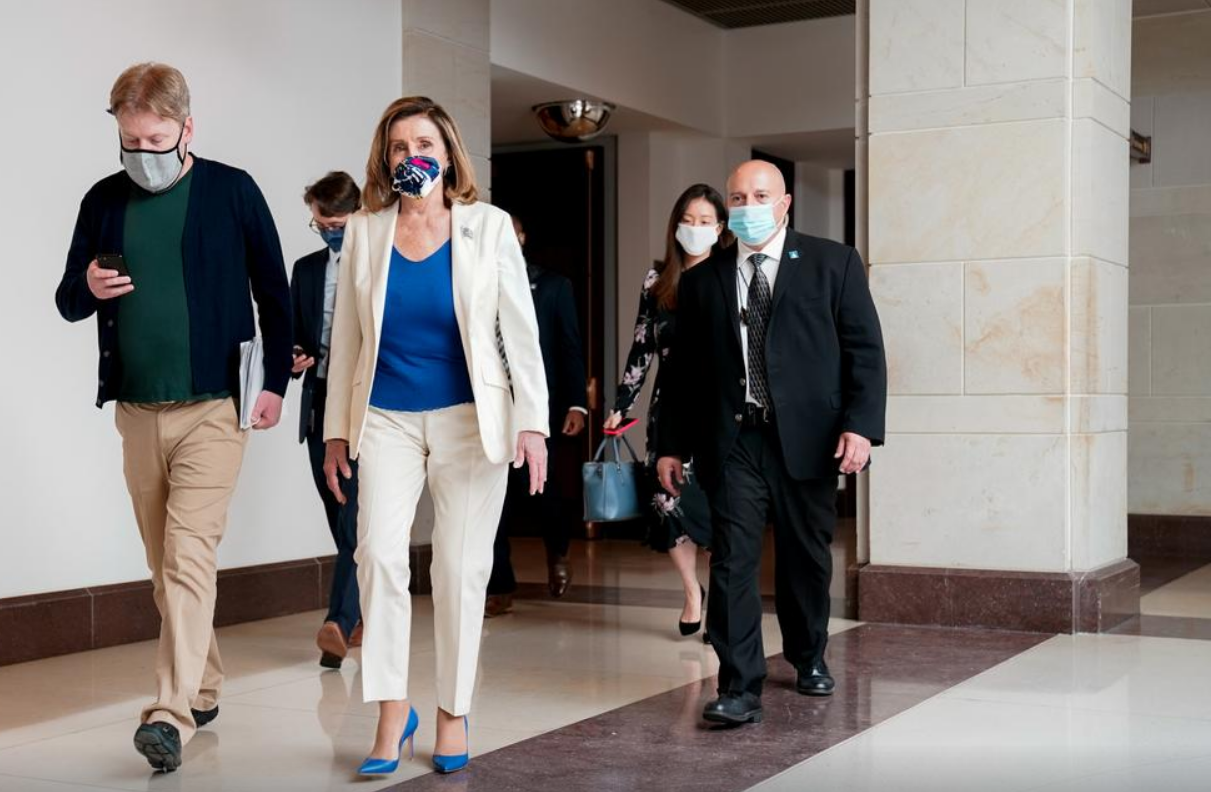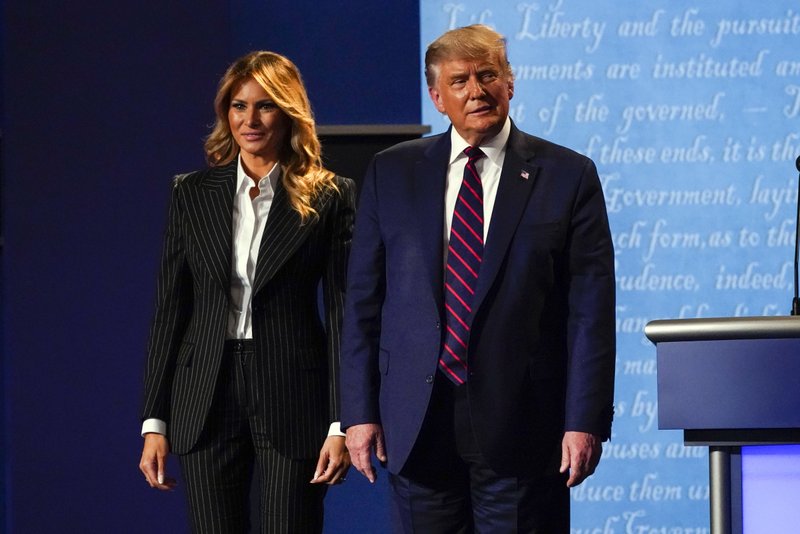The U.S. House of Representatives on Thursday approved a new $2.2 trillion coronavirus relief plan, but objections from the White House and top Republicans are likely to doom it in the Senate.
The Democratic bill passed after a partisan debate by a 214-207 vote without any Republicans in support. The move puts lawmakers no closer to actually delivering aid such as more generous weekly unemployment payments, extended help for small businesses and especially troubled economic sectors such as restaurants and airlines, and another round of $1,200 direct payments to most Americans.
Passage of the $2.2 trillion plan came after a burst of negotiations this week between Treasury Secretary Steven Mnuchin and House Speaker Nancy Pelosi of California. The Trump administration delivered concessions Wednesday, including a $400 per week pandemic jobless benefit and a markedly higher overall price tag of $1.6 trillion, but that failed to win over Pelosi.

The U.S. House Speaker Nancy Pelosi. /Reuters
The U.S. House Speaker Nancy Pelosi. /Reuters
"This isn't half a loaf, this is the heel of the loaf," Pelosi said in a televised interview Thursday. Pelosi spoke after the White House attacked her as "not being serious."
The vote was advertised as a way to demonstrate Democrats were making a good faith offer on coronavirus relief, but 18 Democrats abandoned the party and sentiment remains among more moderate Democrats to make more concessions and guarantee an agreement before Election Day. Republicans controlling the Senate remained divided.
"We raised our offer to 1.6 trillion U.S. dollars," White House Press Secretary Kayleigh McEnany told reporters Thursday. "It's one that she is not interested in."
Mnuchin and Pelosi spoke by phone Thursday, but the speaker was publicly dismissive of the latest White House plan. Discussions are continuing, Pelosi said.
The White House plan, offered Wednesday, gave ground with a $250 billion proposal on funding for state and local governments and backed $20 billion in aid for the struggling airline industry.
Details on the White House offer were confirmed by congressional aides, speaking on condition of anonymity.
White House Chief of Staff Mark Meadows has drawn a line in the sand and warns that Trump won't approve legislation that approaches a $2 trillion threshold. But there's plenty of wiggle room in numbers so large, and the revenue picture for many states is not as alarming as feared when Democrats passed more than $900 billion for state and local governments in May.

U.S. President Donald Trump said on Friday that he and his wife Melania had tested positive for COVID-19 and were going into quarantine, upending the race for the White House. /AP
U.S. President Donald Trump said on Friday that he and his wife Melania had tested positive for COVID-19 and were going into quarantine, upending the race for the White House. /AP
Pelosi said Thursday that the administration is still far short on aid to state and local governments and in other areas.
Pelosi has largely assumed a hard line so far. But she's never had a reputation for leaving large sums of money on the table and her tactical position – facing a White House and Senate controlled by Republicans – is not as strong as her demands might indicate.
The White House also seems far more eager for a deal than Senate Majority Leader Mitch McConnell. Any compromise that could pass both the House and Senate is sure to alienate a large chunk of the Senate GOP. McConnell expressed support for the talks and another bill but isn’t leaning into the effort. But some of his members appear worried that the deadlock is harming their reelection bids.
"I'd like to see another rescue package. We've been trying for months to get there," McConnell told reporters Thursday.
Even if Pelosi and Mnuchin were able to reach a tentative agreement on "top line" spending levels, dozens of details would need to be worked out. A particularly difficult issue, Pelosi told her colleagues earlier in the day, remains McConnell's insistence on a liability shield for businesses fearing COVID-related lawsuits after they reopen their doors.
Source(s): AP